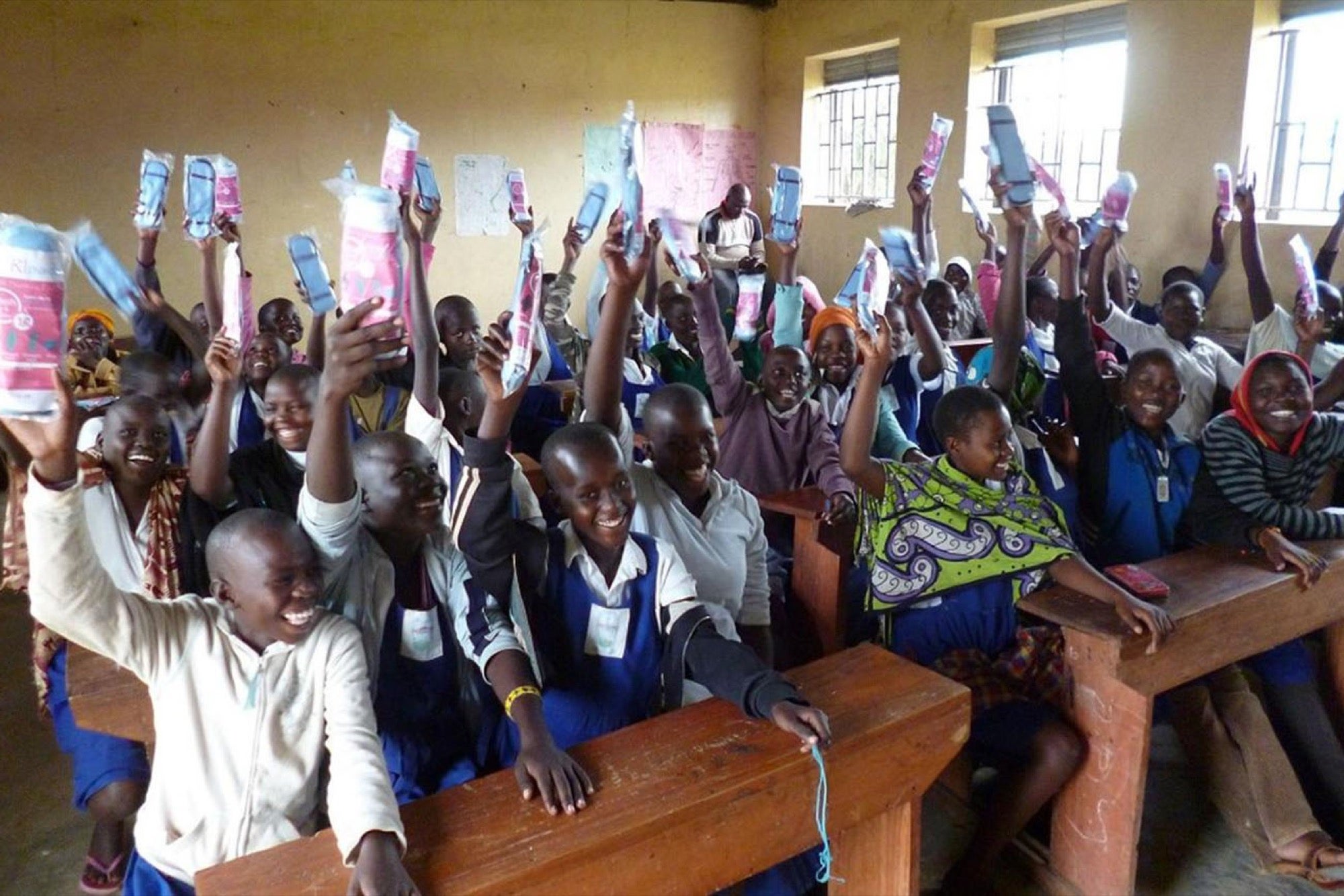Keeping Girls in School Is This Startup's Mission One couple took a trip of a lifetime. Then they started a company that changes the lives of many.
Opinions expressed by Entrepreneur contributors are their own.

One startup company is looking to make a difference in the lives of girls.
To have a chance at success, most every child needs an education. But millions of girls in Africa skip up to one school day out of five – or almost a whole week every month. The reason is blunt: Many can't afford or don't have access to the sanitary products they need when they menstruate.
At least partly as a result, drop-out rates climb sharply once girls reach puberty. In addition to the academic losses, not showing up to school increases the chances a girl will drop out of school entirely, contract HIV and get pregnant.
Uganda-based AFRIpads Ltd. adapted a reusable, sustainable menstrual pad originally designed for eco-conscious North American women and built a social business to produce and sell affordable and accessible sanitary napkins. AFRIpads now reaches 300,000 African girls and women, has generated more than $500,000 in revenue and provides full-time work to more than 80 local women.
Related: This Startup Wants to Shine a Light on Far Reaches of the Globe
On a 2008 trip to Uganda, AFRIpads founders Sophia Klumpp and Paul Grinvalds saw the inadequacy of the sanitary options available to schoolgirls. The couple learned that girls were using old rags, newspapers, leaves and bits of mattress stuffing. Poor hygienic options lead to increased infections. Privacy was extremely limited both at school and home.
Klumpp and Grinvalds discovered Lunapads, based in Vancouver, British Columbia, Canada. Lunapads was already producing a line of reusable, sustainable menstrual pads made of soft, quick-drying fleece, targeted to middle- and upper-income women seeking to keep mountains of pads and tampons out of landfills.
In Uganda, women weren't looking for a green pad, but any pad that was practical, comfortable and -- most of all -- affordable. Lunapads itself had hoped to reach women in the developing world, but its affiliated nonprofit organization, Pads4Girls, was spending nearly $80,000 a year to reach only 300 girls.
Klump and Grinvalds obtained permission to copy Lunapads trademarked products and produce them locally in Uganda. The pads would be supplied to individuals and NGOs at a price of $15 for a year's supply. That's less than half the cost Lunapads was paying for the production of pads to distribute through Pads4Girls, and about 20 percent what Uganda girls pay for commercial disposable pads.
"The product is designed to be a low-cost intermediary, in between unhygienic rags and unaffordable disposable products," Klumpp says.
AFRIpads launched a pilot in March of 2009 with seed capital from Bert Bolkenstein, a philanthropic investor in the Netherlands. AFRIpads bv, in the Netherlands, is majority shareholder with 70 percent ownership. Klumpp and Grinvalds are 30 percent shareholders. In December of 2013, the OPES Impact Fund made an equity investment in AFRIpads that will help the company meet its goal of reaching 500,000 women and girls by 2015.
Related: How 'Happy Family' Became Healthy Baby-Food Pioneers
Lunapads remains a partner, and has established a buy-one, give-one model, similar to TOMS Shoes or Warby Parker eyeglasses. For every Lunapad sold, the proceeds are used to buy AFRIpads products for girls in East Africa. Since 2010, more than 120,000 pads have been donated to girls in need in 15 nations, along with health and hygiene education. Since joining forces, Lunapads' annual revenue has climbed to more than $1 million.
"Our partnership with AFRIpads allows us to reach substantially more girls in need," says Lunapads co-founder Madeleine Shaw, "while also making our customers partners in the impact."
AFRIpads are produced in two workshops, one of which is without electricity, using treadle-powered sewing machines and sergers, in rural Uganda. A group of 8256 young local women cut the patterns, oversee quality control, and sew the finished AFRIpads. Last week, theThe company recently opened a new plant to boost efficiency by integrating production in one location.
As the business grows, so does the potential for social impact. Six out of seven Ugandan girls leave school early, translating to about $10 billion dollars in lost potential earnings. Studies suggest that even one more year of school means a 10 percent to 20 percent boost in income. With additional education, fertility rates and infant mortality decrease and community engagement and family health improve.
"Girls with more schooling participate in greater numbers in the labor force when they grow up, and they are able to earn more for their families and society," the Center for Global Development reports.
Related: This Group Aims to Connect Socially Responsible Startups With 'Retail' Investors
Impacts
Financial: AFRIpads has generated more than $500,000 in revenue and provides full-time work to more than 80 local women.
Social: AFRIpads reaches more than 300,000 African women, helping them stay in school and be productive during their monthly periods.
Produced by ImpactAlpha and the Case Foundation.
One of a series of impact profiles produced in conjunction with the Case Foundation's new publication, "A Short Guide to Impact Investing."










